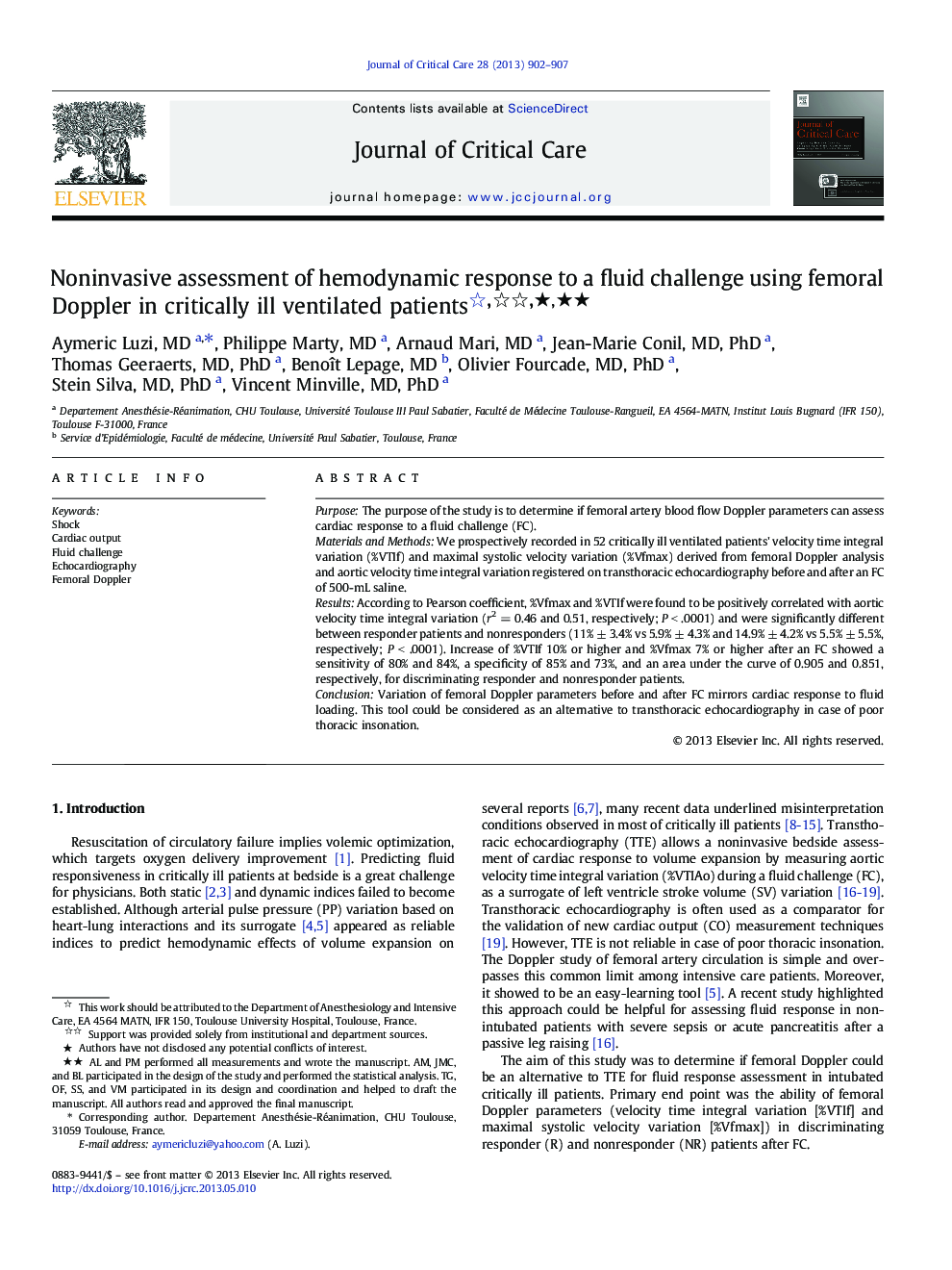| Article ID | Journal | Published Year | Pages | File Type |
|---|---|---|---|---|
| 5887023 | Journal of Critical Care | 2013 | 6 Pages |
PurposeThe purpose of the study is to determine if femoral artery blood flow Doppler parameters can assess cardiac response to a fluid challenge (FC).Materials and MethodsWe prospectively recorded in 52 critically ill ventilated patients' velocity time integral variation (%VTIf) and maximal systolic velocity variation (%Vfmax) derived from femoral Doppler analysis and aortic velocity time integral variation registered on transthoracic echocardiography before and after an FC of 500-mL saline.ResultsAccording to Pearson coefficient, %Vfmax and %VTIf were found to be positively correlated with aortic velocity time integral variation (r2 = 0.46 and 0.51, respectively; P < .0001) and were significantly different between responder patients and nonresponders (11% ± 3.4% vs 5.9% ± 4.3% and 14.9% ± 4.2% vs 5.5% ± 5.5%, respectively; P < .0001). Increase of %VTIf 10% or higher and %Vfmax 7% or higher after an FC showed a sensitivity of 80% and 84%, a specificity of 85% and 73%, and an area under the curve of 0.905 and 0.851, respectively, for discriminating responder and nonresponder patients.ConclusionVariation of femoral Doppler parameters before and after FC mirrors cardiac response to fluid loading. This tool could be considered as an alternative to transthoracic echocardiography in case of poor thoracic insonation.
